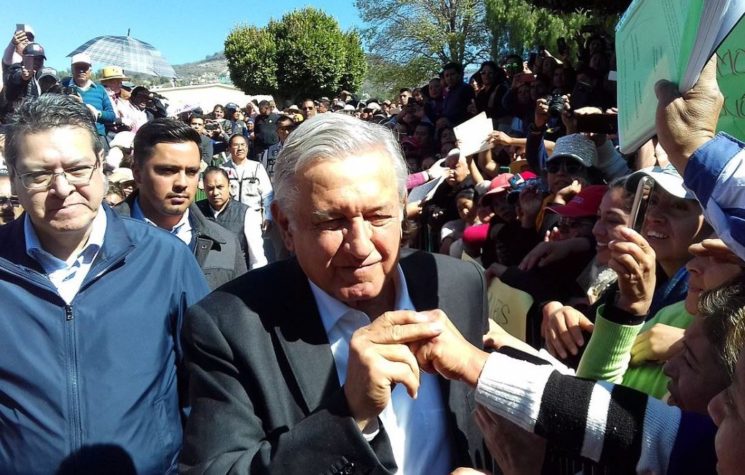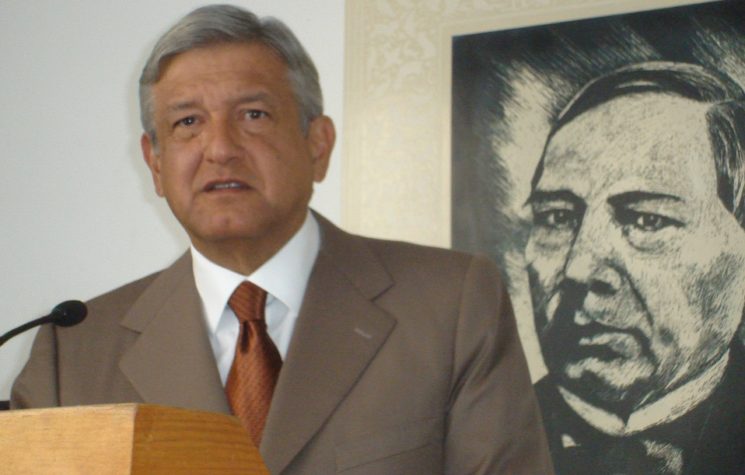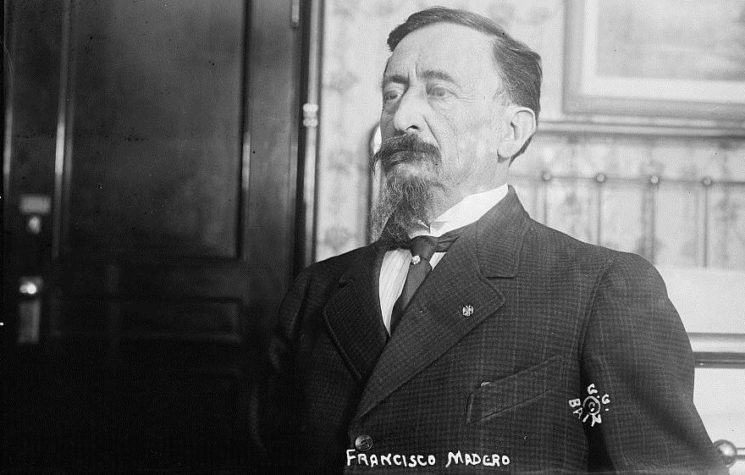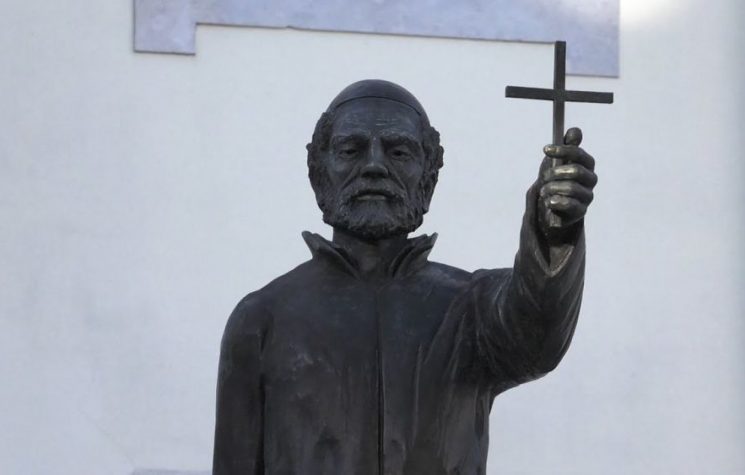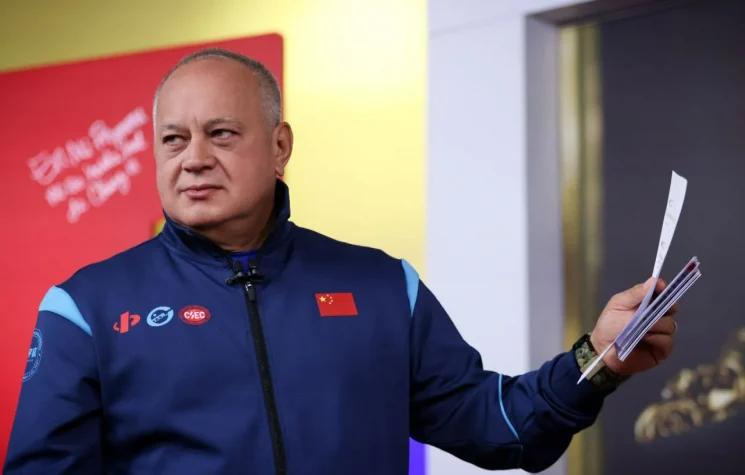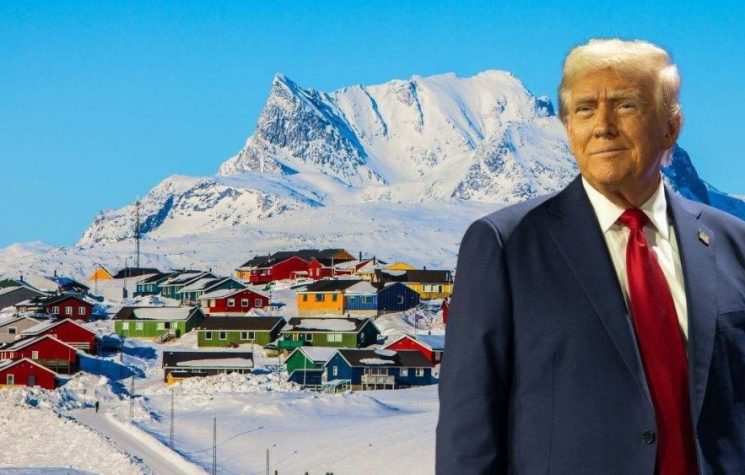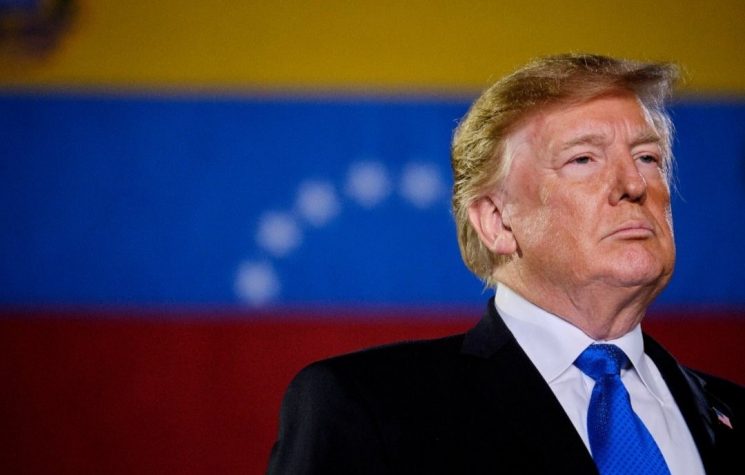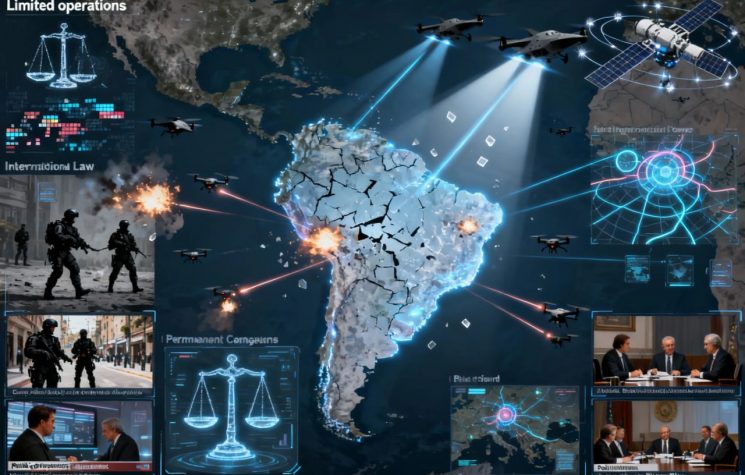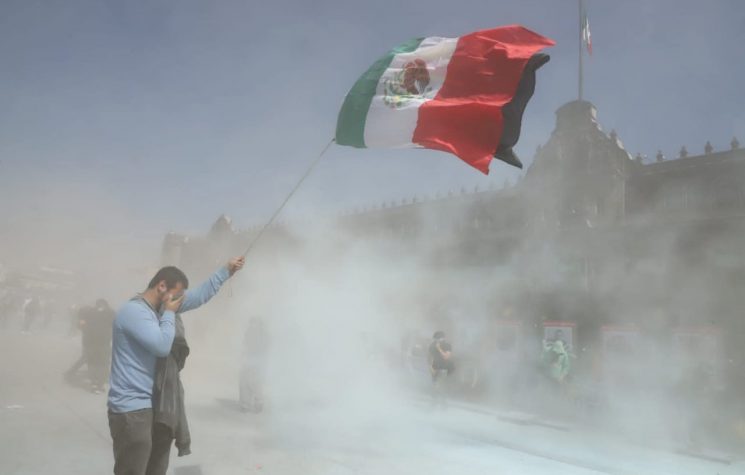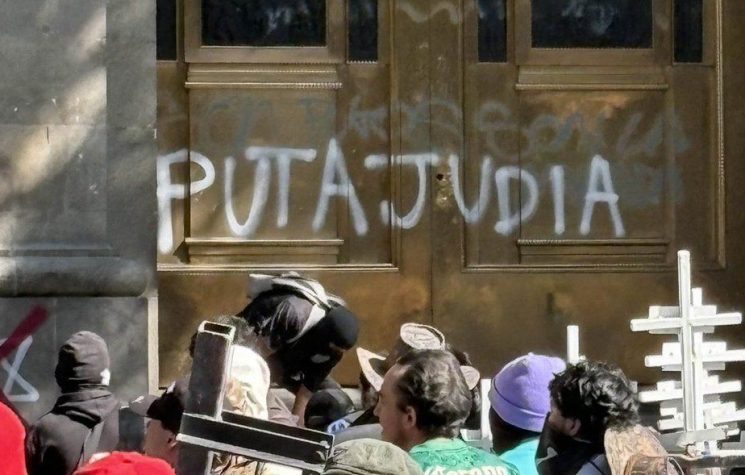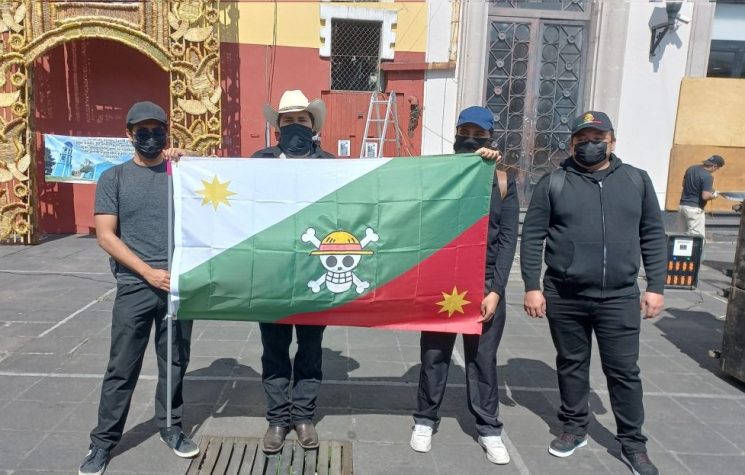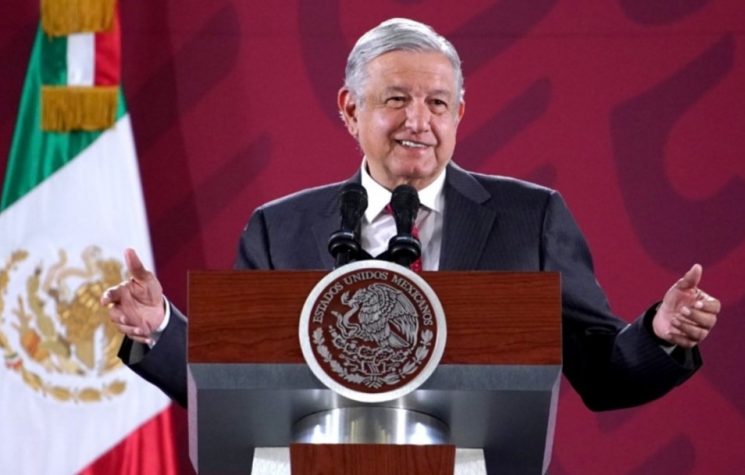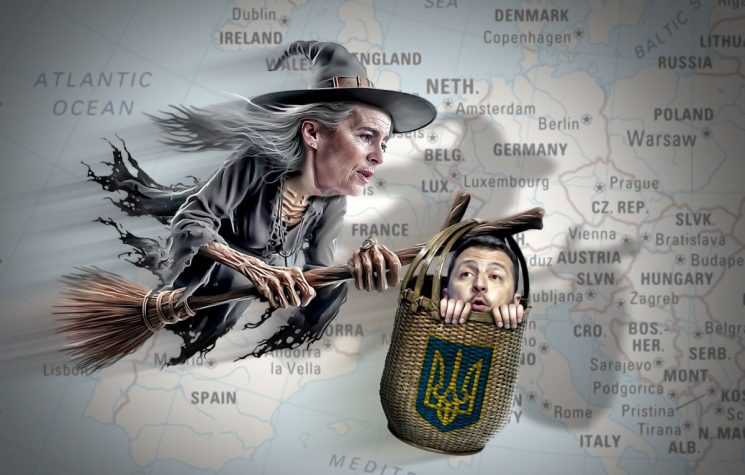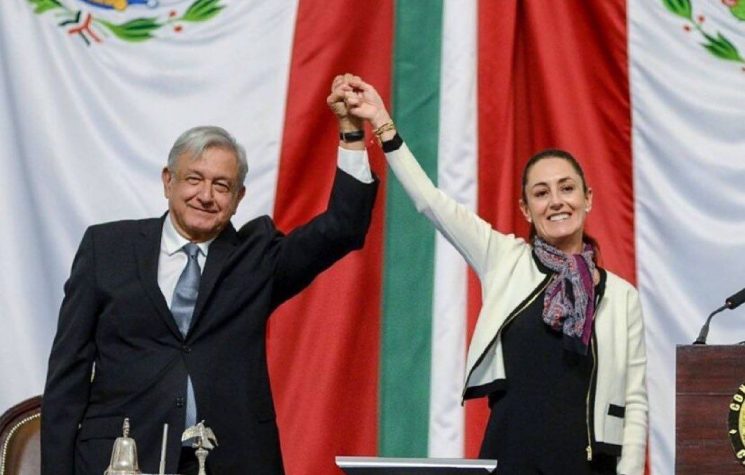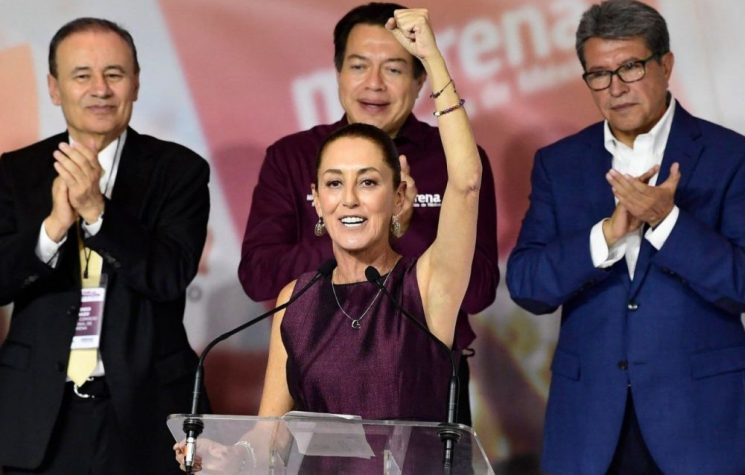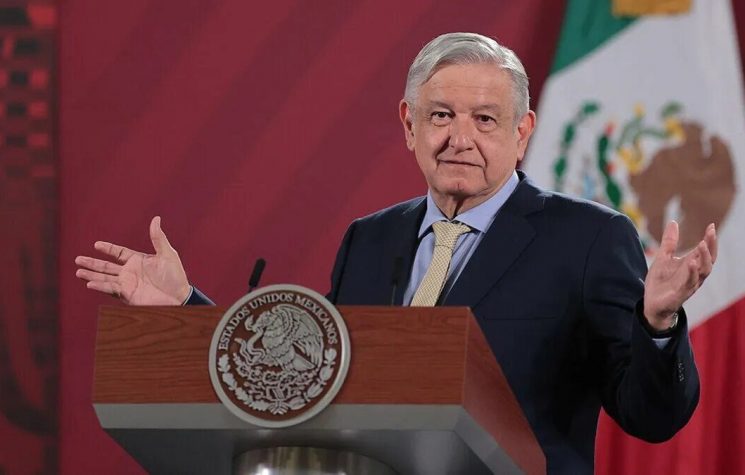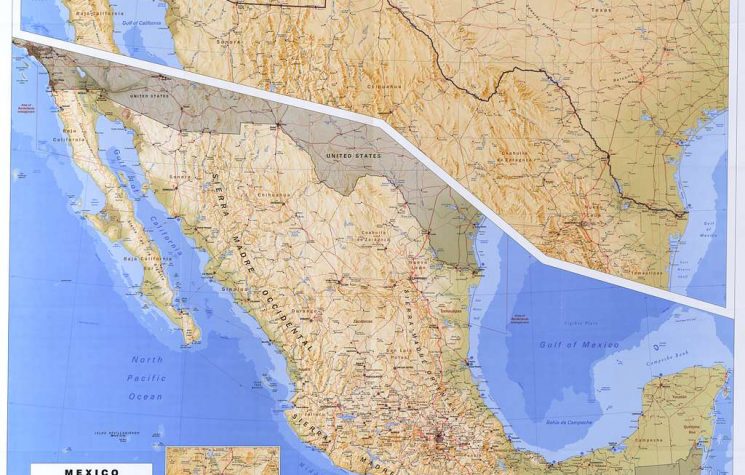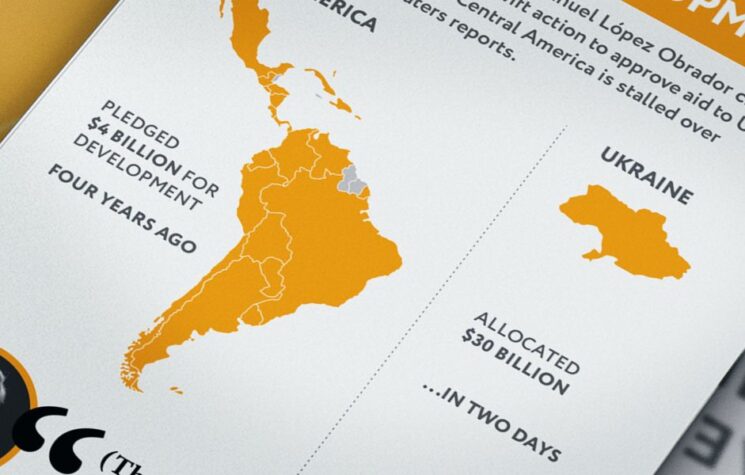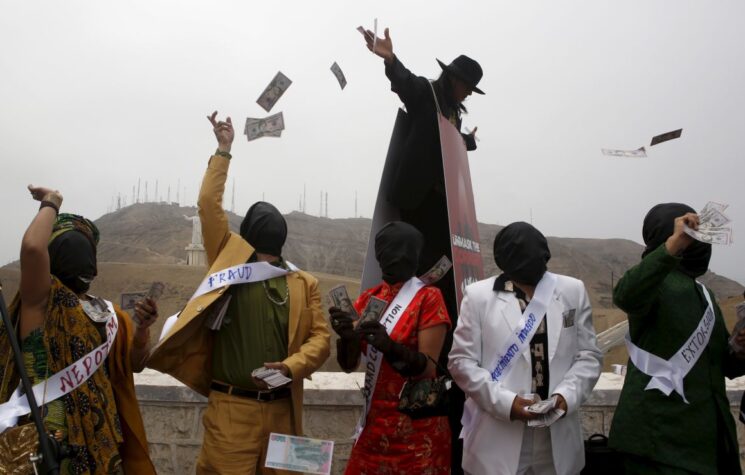Mexico’s President Andres Manuel Lopez Obrador (AMLO) has courageously stood up to the financial oligarchy in recent weeks by rejecting pressure to shut down the entire Mexican economy and bail out financial speculators as false “solutions” to the covid-19 pandemic.
Unlike the U.S. which has committed over $4.5 trillion to bailout criminal speculators amidst the crisis which is only enflaming the meltdown of the financial system, Obrador took a different approach last week saying: “No more rescues in the style of the neoliberal period, that provided for banks, big companies. They shouldn’t even be thinking that there will be tax forgiveness or other mechanisms that were used before.”
The End of the Neo-Liberal Order
This comes in the wake of Obrador’s recent anno the creation of a new network of national banks which I discussed in my last paper Mexico’s Fight for National Banking Revives a Forgotten History. Imposing the power of sovereign controls over private finance will give Mexico the capacity to direct productive credit towards things which the IMF/World Bank and international vulture funds have outlawed for decades: Advanced infrastructure and scientific progress needed to achieve economic independence.
This use of national power over banking, alongside the wise application of a protective tariff is the right of every nation, but since the post-1971 “globalized laws of free trade” outlawed the obstructing influence of nations into the world markets, very few nations have acted upon that right. Faced with the oncoming meltdown of the western financial bubble economy and the proven superior model of China’s Belt and Road Initiative that is all beginning to change.
Already 17 nations of Central and South America have signed agreements with China’s BRI joining a growing array of 160 nations operating in different degrees under this new multipolar system which focuses on real economic development of nations and people over the common practice of worshipping financial profit for the sake of speculators. Meanwhile the March 20 call for total Ibero-American debt forgiveness drafted by the Latin American Strategic Center for Geopolitics (LASCG) and endorsed by dozens of former Latin-American statesmen has put a renewed focus on the need for a re-organized financial system cleanse of debt slavery, speculation and rule by private finance.
Due to pressure imposed by imperial forces in the US State Department, Mexico’s desires to collaborate with China’s Belt and Road Initiative have been terribly set back even as these words are written.
In spite of this, AMLO has made one of his leading initiatives since his 2018 election the Mexico-Central American Development Plan which is a revolutionary $40 billion system of mega projects for the poverty prone South Mexico and Northern Triangle of El Salvador, Guatemala and Honduras. This development plan which Foreign Secretary Marcelo Ebrard called “a Marshall Plan for Latin America” is built entirely around the Belt and Road Model and infuses BRI principles into North American long term planning as it is designed around a Cross Isthmus and North/South railway, ports, new electricity grid, and massive agro-industrial development.
Set side by side with his crackdown on Mexico’s deep state, and national banking renaissance AMLO is reviving a fight which last took place nearly 40 years ago when Mexico’s great president Lopez Portillo took a major stand in defense of both his nation and the world as a whole.
Portillo’s 1982 Fight for a Multipolar System
Standing defiantly against the empire of Wall Street and the City of London, Portillo recognized that his nation had been targeted for depopulation and destruction. Henry Kissinger’s 1974 National Security Study Memorandum 200 (NSSM 200) had outlined 13 developing nations who aspired to end their colonial scars by following the Japan model of advanced scientific and technological progress. Kissinger’s bone chilling report stated that should these nations succeed, then they would cause an overpopulation crisis. America’s duty, in Kissinger’s twisted mind, had to become wired towards a strict policy of de-population using every mechanism available with a focus on economic warfare. Mexico was at the top of this list.
Trapped under years of conditionality-laden loans from the IMF and World Bank, Mexico and other nations of the Global South were trapped under usurious debts, underdevelopment (loans were given on the condition that money would rarely be spent on any advanced infrastructure or industrialization), and poverty with no hope in sight.
Lopez Portillo was trapped. But unlike many others at this time, he didn’t give up.
In order to escape this trap, several major (yet little known) decisions were made by Portillo at this time which led into his declaration of war against the oligarchy.
How Portillo Played the LaRouche Card
The first major decision occurred when Portillo invited American economist Lyndon LaRouche to the Presidential Palace at Los Pinos in May 1982 where after a long meeting, Portillo requested the economist draft a policy program for Mexico’s resistance to the empire and broader economic recovery. This program was given to Portillo in August 1982 entitled Operation Juarez (named after Mexico’s first revolutionary President Benito Juarez).
Within weeks, Portillo followed the advice of LaRouche and attempted to gain the support of Argentina and Brazil to stand together against the oligarchy using their most powerful weapon: The debt bomb (a threat to default on their usurious debts). On September 1, 1982, Portillo nationalized the banks of Mexico to the ire of the financial oligarchy.
Portillo moved quickly to nationalize much of Mexico’s oil while preparing for capital controls to combat speculation, and manoeuvred to use Mexico’s oil revenues to maximize advanced technological growth in agriculture and nuclear energy as outlined in detail in Operation Juarez. Then came Portillo’s greatest moment when on October 1st 1982, he stood for all people of the earth at the United Nations in speech which must be heard to be believed.
In his speech Portillo said:
“The most constant concern and activity of Mexico in the international arena, is the transition to a New Economic Order…. We developing countries do not want to be subjugated. We cannot paralyze our economies or plunge our peoples into greater misery in order to pay a debt on which servicing tripled without our participation or responsibility, and with terms that are imposed upon us. We countries of the South are about to run out of playing chips, and were we not able to stay in the game, it would end in defeat for everyone. I want to be emphatic: We countries of the South have not sinned against the world economy. Our efforts to grow, in order to conquer hunger, disease, ignorance, and dependency, have not caused the international crisis….
We have been a living example of what occurs when an enormous, volatile, and speculative mass of capital goes all over the world in search of high interest rates, tax havens, and supposed political and exchange stability. It decapitalizes entire countries and leaves destruction in its wake. The world should be able to control this; it is inconceivable that we cannot find a formula that, without limiting necessary movements and flows, would permit regulation of a phenomenon that damages everyone. It is imperative that the New International Economic Order establish a link between refinancing the development of countries that suffer capital flight, and the capital that has fled.
The reduction of available credit for developing countries has serious implications, not only for the countries themselves, but also for production and employment in the industrial countries. Let us not continue in this vicious circle: it could be the beginning of a new medieval Dark Age, without the possibility of a Renaissance….”
Ultimately, without the support of a debtors alliance for progress, Portillo’s plans were sabotaged under a barrage of speculative attacks on the peso which drove his plans into the ground, and his nation into turmoil and economic hell for the next 40 years. Those nations which were too cowardly to stand alongside Portillo suffered as gravely as did Mexico in the coming decades*.
During the last 3 minutes of this video, Portillo is featured at a conference in 1998 sitting beside LaRouche’s wife Helga Zepp-LaRouche (chairwoman of the Schiller Institute). In this recording one can listen to the old statesman describe his 1982 battle and his debt to the LaRouches:
“I congratulate Doña Helga for these words, which impressed me, especially because first they trapped me in the Apocalypse, but then she showed me the staircase by which we can get to a promised land. Many thanks, Doña Helga.
Doña Helga—and here I wish to congratulate her husband, Lyndon LaRouche…. And it is now necessary for the world to listen to the wise words of Lyndon LaRouche. Now it is through the voice of his wife, as we have had the privilege to hear.
How important, that they enlighten us as to what is happening in the world, as to what will happen, and as to what can be corrected. How important, that someone dedicates their time, their generosity, and their enthusiasm to this endeavor.”
It is noteworthy, that less than one year before Portillo spoke these words, Helga LaRouche presented a program entitled the New Silk Road to a conference in Beijing calling for a new system of economic development corridors and sea routs to be developed by China’s government as a means of breaking other nations free from neo-colonialism. A selection from a 1997 Washington Conference features an incredible preview into the Chinese Grand design which has come to life over two decades later under the leadership of Xi Jinping.
It is important to recall that even though Mexico and the USA currently have many obstacles between them and the New Silk Road, they are both led by two leaders who have struggled with the deep state structures within their nations and who would be very open to collaborating with the new multipolar system led by China and Russia as an alternative to burning in the meltdown of the western financial system. The spirits of both Lopez Portillo and Lyndon LaRouche would certainly smile at this emerging potential.








